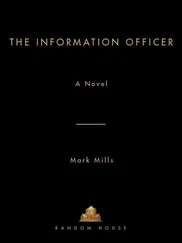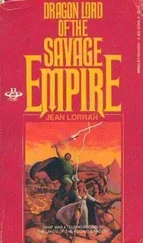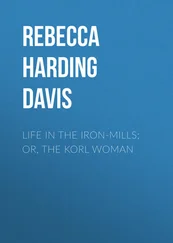Mark Mills - The Savage Garden
Здесь есть возможность читать онлайн «Mark Mills - The Savage Garden» — ознакомительный отрывок электронной книги совершенно бесплатно, а после прочтения отрывка купить полную версию. В некоторых случаях можно слушать аудио, скачать через торрент в формате fb2 и присутствует краткое содержание. Жанр: Старинная литература, на английском языке. Описание произведения, (предисловие) а так же отзывы посетителей доступны на портале библиотеки ЛибКат.
- Название:The Savage Garden
- Автор:
- Жанр:
- Год:неизвестен
- ISBN:нет данных
- Рейтинг книги:4 / 5. Голосов: 1
-
Избранное:Добавить в избранное
- Отзывы:
-
Ваша оценка:
- 80
- 1
- 2
- 3
- 4
- 5
The Savage Garden: краткое содержание, описание и аннотация
Предлагаем к чтению аннотацию, описание, краткое содержание или предисловие (зависит от того, что написал сам автор книги «The Savage Garden»). Если вы не нашли необходимую информацию о книге — напишите в комментариях, мы постараемся отыскать её.
The Savage Garden — читать онлайн ознакомительный отрывок
Ниже представлен текст книги, разбитый по страницам. Система сохранения места последней прочитанной страницы, позволяет с удобством читать онлайн бесплатно книгу «The Savage Garden», без необходимости каждый раз заново искать на чём Вы остановились. Поставьте закладку, и сможете в любой момент перейти на страницу, на которой закончили чтение.
Интервал:
Закладка:
He found himself speculating on what had happened to keep them apart. It was probably doomed from the start—a penniless student and a young heiress. Much would have been expected of any potential spouse of Signora Docci. He would have been well vetted, the future of the estate a prime consideration. And a young foreigner with an interest in Etruscan archaeology would hardly have offered much comfort in that department.
These were, of course, wild imaginings, but he let his mind roam the possibilities until it was time to leave.
Foscolo, the rock-ribbed handyman, insisted on being present when Adam took possession of the bicycle. He had a big square head planted on a small square body, and his iron-gray hair was clipped to a brush. There wasn't much to say on the subject—it was an old black bicycle with a wicker basket—so Adam shook Foscolo's knuckled hand and thanked him. This wasn't good enough for Foscolo, who wanted confirmation that all was in working order. Adam dutifully cycled around the courtyard a few times for his audience of one and declared the brakes to be "eccellente." Foscolo grunted skeptically and raised the saddle an inch or two.
Peddling back to San Casciano, Adam deviated from the main track, exploring. The dusty trail petered out in an olive grove. It wasn't a totally wasted detour. He found himself presented with an impressive view of Villa Docci. From afar, the shuttered, silent rooms of the top floor seemed even more striking, more ominous.
His thoughts turned to Signora Docci's account of her eldest son's death at the hands of the Germans. They also turned to Fausto's curious, half-mumbled comment on the same subject just the evening before: "Cost dicono."
So the story goes.

EITHER HE WAS SO DISTRACTED THAT HE DIDN'T HEAR her footfalls, or she deliberately set out to creep up on him. Probably a bit of both.
He was standing at the head of the valley, on the brow above the amphitheater, staring up at the triumphal arch. A warm light from the lowering sun was bleeding through the trees, flushing the garden amber. Even the dense wood of dark ilex beyond the arch seemed somehow less forbidding.
It was here, just inside the tree line, that the spring was located—a low artificial grotto housing a trough of rusticated stone. Under normal circumstances, water would have filled the trough before overflowing into a channel that ran beneath the arch to the top of the amphitheater, where it divided.
He was standing astride this channel, staring up at the arch, when he heard her voice.
"Hello."
She was off to his left, beneath the boughs of a tree. Her long black hair was tied back off her face in a ponytail and she was wearing a sleeveless cotton dress cinched at the waist with a belt.
"You haven't moved since I first saw you," she said in accented English, stepping toward him.
He thought at first it was the dappled shade playing tricks with the light, but as she drew closer he could see that her smooth, high forehead was indeed marked with scars. One was short and sat just beneath the hairline in the center. From here, another cleaved a diagonal path all the way to her left eyebrow.
"I thought maybe the garden had a new statue," she said.
Adam returned her smile. "I'm sorry, I was thinking."
He held her dark, almond eyes, conscious of not allowing his gaze to stray to her forehead. Not that she would have cared, he suspected. If she'd wanted to conceal the disfigurement she could quite easily have worn her hair differently, rather than drawing it straight back off her face.
"You must be Adam."
"Yes."
"I'm Antonella."
"The granddaughter, right?"
"She told you about me?"
"Only that you were harmless."
"Ah," she replied, a crooked gleam in her eye, "that's because she thinks she knows me."
She craned her long neck, looking up at the inscription on the lintel of the arch.

"What were you thinking?" she asked.
"It's not symmetrical."
"No?"
"The decorative panels at the side—look—the diagonals run the same way."
It was hard to make out—the stone was weathered and stained with lichen—but there was no mistaking the anomaly.
"I never noticed before," she said quietly. "What does it mean?"
"I don't know. Probably nothing." He glanced over at her. "It's a bit overblown, don't you think?"
"Overblown?"
"The arch. For the setting, I mean."
"I don't know the word."
"Overblown. It means . . . pretentious."
"Pretenzioso? Maybe. A bit," she said. "You don't like it?"
"No, I do. It's just—"
He broke off, aware that he was in danger of sounding a bit, well, overblown himself.
"No, tell me," she insisted. "I think I know what you mean."
The triumphal arch was a classical architectural form that had been revived during the Renaissance, he explained, but so far he'd found no precedent for this one in any of the other gardens that he'd researched. Moreover, its inclusion seemed at odds with the discreet symbolism and subtle statements of the rest of the cycle.
Maybe Antonella was being polite, but she asked if he had any other insights he was willing to share with her. He should have confessed it was early days still, but the prospect of a leisurely stroll in her company overrode these thoughts.
The amphitheater that fell away down the slope behind them was not exclusive to Villa Docci, he explained, although it was narrower and more precipitous than the one in the Sacro Bosco, the Sacred Wood, at Bomarzo near Rome. Interestingly, Pier Francesco Orsini had also dedicated that garden to his deceased wife, Giulia Farnese, although the parallels stopped there. The memorial garden at Villa Docci was an exercise in restraint compared to the riotous imagination on display in the Sacro Bosco, with its mausolea, nymphaea, loggias and temples, and its stupefying array of bizarre creatures carved from solid rock: sirens, sphinxes, dragons, lions, a giant turtle, even an African war elephant holding a dead soldier in its trunk.
The more temperate approach at Villa Docci was exemplified by the statue of Flora on the plinth near the top of the amphitheater. The corkscrew pose, with the left leg bent and resting on a perch, was a traditional stance, typical of the mid-to-late sixteenth century—a form that had found its highest expression in the sculptures of Giambologna and Ammannati. In fact, as the file pointed out, the statue of Flora was closely modeled on Giambologna's marble Venus in the Boboli Gardens in Florence, although like many of the imitations spawned by that masterpiece, it lacked the original's grace and vitality.
"I don't know about the others," said Antonella as they circled beneath Flora, "but for me she is alive."
Her look challenged him to contest the assertion. When he didn't, she added, "Touch her leg."
He wished she hadn't said it. He also wished she hadn't reached out and run her hand up the back of the marble calf from the heel to the crook of the knee, because it left him no choice but to follow suit.
He tried to experience something—he wanted to experience something—and he did.
"What do you feel?" asked Antonella.
"I feel," he replied, "like a sweaty Englishman molesting a naked statue in the presence of a complete stranger."
Antonella gave a sudden loud laugh, her hand shooting to her mouth.
"I'm sorry," she said. "Maybe you will see her differently with time."
"Maybe."
"Go on, please."
Читать дальшеИнтервал:
Закладка:
Похожие книги на «The Savage Garden»
Представляем Вашему вниманию похожие книги на «The Savage Garden» списком для выбора. Мы отобрали схожую по названию и смыслу литературу в надежде предоставить читателям больше вариантов отыскать новые, интересные, ещё непрочитанные произведения.
Обсуждение, отзывы о книге «The Savage Garden» и просто собственные мнения читателей. Оставьте ваши комментарии, напишите, что Вы думаете о произведении, его смысле или главных героях. Укажите что конкретно понравилось, а что нет, и почему Вы так считаете.











